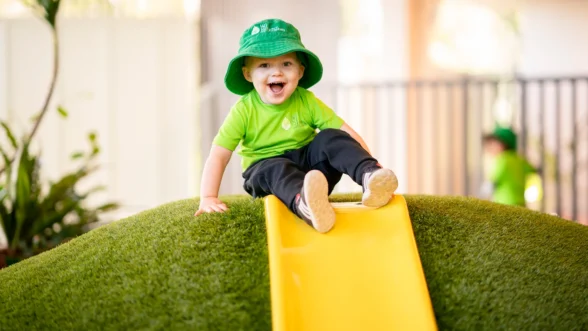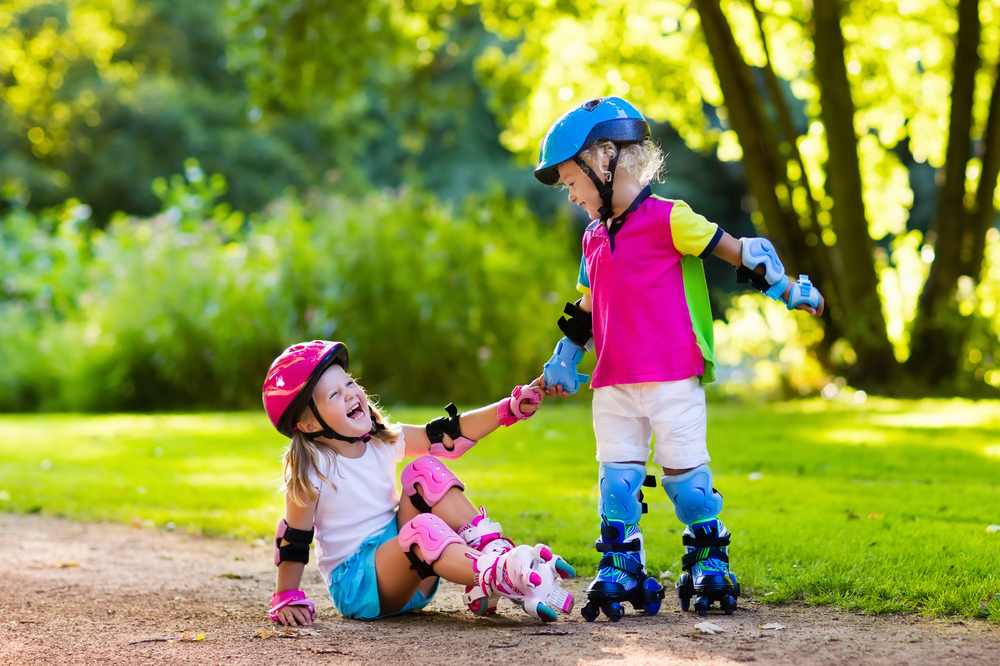
Education, Wellbeing
Useful tools, Wellbeing
10 November, 2026

Empathy – it’s how we sense and sensitively respond to other people’s emotions, a term used generally to describe the ability to imagine what others are thinking and feeling. It’s seen as the vital first step in being able to help people.
But what does empathy mean for kids? And when do kids develop empathy? Experts believe that, in the early years, children are naturally egocentric. They are more inclined to think about themselves and their own needs than the needs of others. But studies show that at around two years old, children begin to display genuine empathy and an ability to understand how other people feel, even if they don’t feel that way themselves.
Of course, every child is different. While there is no ‘one size fits all’ approach, there are certain ways that parents and educators can help to develop empathy during those all-important first five years.
Here’s how to teach kids empathy.
Children are like sponges – they absorb what they see, hear and feel around them, and often model those behaviours. Children also spend much of their time at home with their family, so it goes without saying that you – as a parent – have an important role to play in helping them develop empathy. It is important to model empathy when you spend time with your child, either by asking them questions to better understand how they are feeling, participating in altruistic acts like community service or volunteering, and engaging in your own self-care. Before you act, try to think: is this a behaviour I would want my child to exhibit?
Communication is key, especially when it comes to helping your child develop empathy. Talking openly about the gamut of emotions your child may experience in a single day – from happiness about seeing their friends at childcare to exhaustion after a long day or frustration with their sibling – is an effective way to help them identify their own emotions. They will learn the importance of recognising emotions, rather than dismissing them, and become better at managing them in a constructive way. From there, they can begin to identify the behaviours that come with these emotions and use them to understand the emotions of others.
Notice when your child displays empathy – perhaps they share their toy with a sibling, comfort an upset peer or respond positively when they can see you are becoming frustrated – and ensure you praise them for it. Make the praise specific so that they understand how the behaviour they displayed was empathetic, using words like ‘kind’, ‘helpful’, and ‘caring’ to describe their actions. Experts believe this kind of positive reinforcement makes your child more likely to continue this behaviour in the future.
While empathetic behaviour will often just happen, you can also help your children understand what it means to be empathetic by setting expectations. In order to do this, you need to ensure they have a good understanding of empathetic behaviours – read books about empathy and point it out when you see it in others before explaining to your children what you expect from them. Do your own research by searching things like ‘what is empathy for kids’ and ‘when do kids learn empathy’ to ensure your expectations are age-appropriate and achievable.
Empathy isn’t a skill your child will pick up in a week – it is always being developed over their lifetime. Like any skill empathy takes practice, so it makes sense to give your child plenty of opportunities to improve their empathy. You can create these opportunities by having them participate in social activities or sport, having family meetings when issues arise, and pointing out moments where empathy could be practiced when you witness them.
At Edge, our strong focus on creating friendships – not only among children, but among staff, too – and outdoor play provides your child with countless opportunities to practice empathy. Our educators are focused on empathy skill development within their teaching style, which encourages children to ask questions, explore new ideas, and learn through play.
Find out more about our approach here!